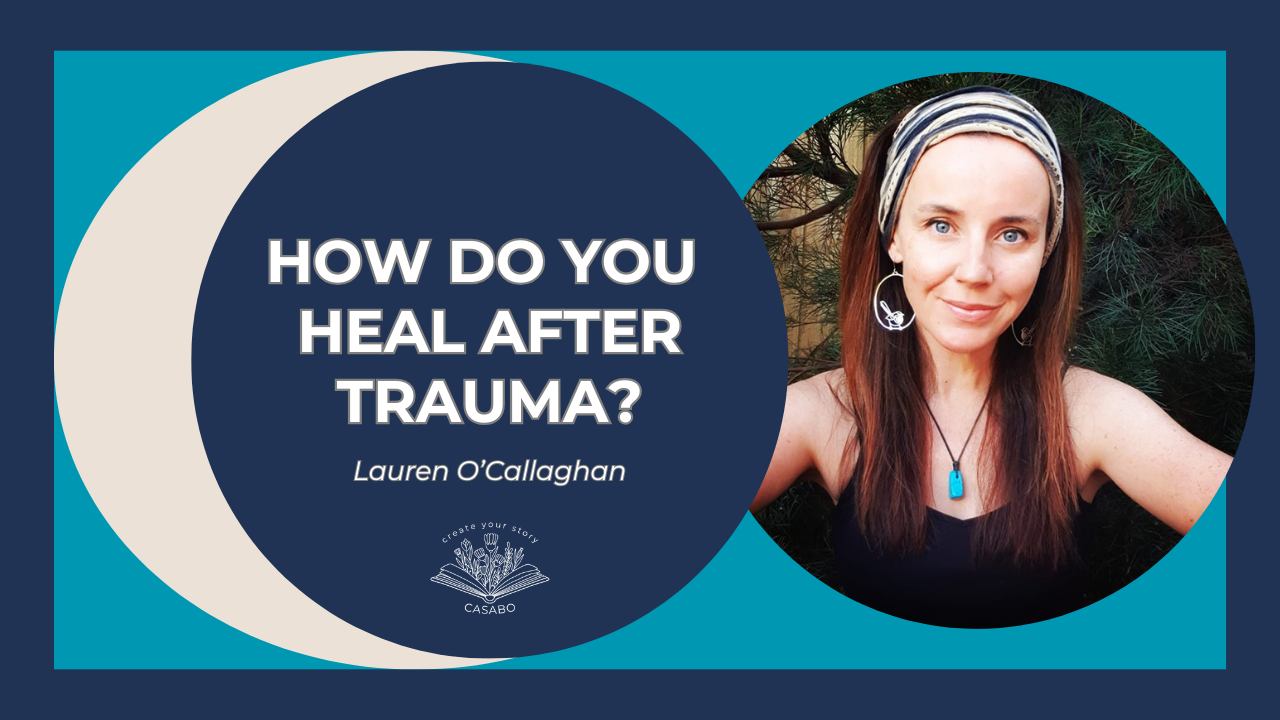
[⇒ Watch Lauren's video interview here]
**Gentle heads-up: Lauren’s story touches on sexual assault, but more than that, it’s about resilience, intuition, and reclaiming your power.**
Sometimes change begins with the smallest of choices. For Lauren O’Callaghan, it was the night she decided — for no logical reason — to stop by a police station on her way to theatre rehearsal.
She had a bundle of documents that needed certifying, nothing urgent, nothing that couldn’t wait. But the inner nudge was so strong she couldn’t ignore it. As the officer signed the papers, words she hadn’t planned tumbled out of her mouth: “How long after a sexual assault can you press charges?”
In that single moment, more than ten years of silence cracked open.
The weight of silence
For over a decade, Lauren had kept the rape she endured hidden, even from those closest to her. On the outside, she seemed to have a good life — a solid long-term relationship, a love for theatre, a home that looked secure. But inside, she carried a deep sense of low self-worth.
She had mentioned the assault once, in passing, to a psychologist. When they asked, “So this doesn’t bother you?”, she quickly agreed, shutting the door again. It was easier to suppress it than to risk the pain of revisiting it.
But silence takes its toll. The trauma seeped into her life in other ways: depression, disconnection, anorexia. She describes nights of feeling utterly alone, yet still clinging to tiny rituals — journaling, pulling oracle cards — that gave her the faintest sense she was being guided.
A brutal but necessary journey
The moment she spoke up, the past could no longer be hidden. The police assigned a detective, and a long legal process began.
It wasn’t quick. It wasn’t clean. It was exhausting. When Lauren first got the call that the perpetrator had been found, her knees buckled and she collapsed to the floor. It all became real in a way she hadn’t imagined.
The hearings themselves were relentless — hours of questioning by the defense designed to twist her words and tear holes in her story. All the old trauma resurfaced, crashing against her already fragile self-worth. At the same time, her relationship of many years fell apart under the strain.
She describes that season as drowning. And yet, with every blow, something inside her was hardening into strength.
“What I know now is that with every challenge, I was stepping further and further into my own power.”
The thread of intuition
Looking back, Lauren can see a pattern: she was being guided, even when she didn’t realise it.
It started with that “hunch” to go to the police station. It continued with the inner knowing that she couldn’t stay in a relationship that no longer served her, even though leaving meant upending her life. And when things felt unbearable, she leaned on a quiet faith she’d carried since she was fifteen, when she first sensed the presence of angels during a time of family turmoil.
“Even when I felt completely alone, I know now I wasn’t.
There was guidance, there was support, I just couldn’t see it clearly at the time.”
Finding her voice
When the court process ended, Lauren emerged changed. She remembers walking differently that day — more grounded, more certain.
After years of silence, she was ready to speak. She wrote her first public post about the assault and was flooded with messages from women who thanked her for sharing. Some told her that her words gave them the courage to face their own past.
She realised what she had once felt through other women’s stories was now happening through hers: when one person dares to speak, others feel less alone.
A turning point in 2020
Then, in 2020, came another defining moment. With two small children and the fear of a global pandemic pressing in, Lauren found herself in her backyard declaring out loud: “I cannot lose it now. I need to have a strong mind.”
It was a line in the sand. The very next day, her brother sent her a video of Bob Proctor speaking. She began studying his work, and within weeks her worldview shifted.
The teaching that struck her most was simple but life-changing:
“I am not my thoughts. I can choose my thoughts.”
For someone who had lived for years under the weight of negative, punishing thoughts, it was revolutionary.
A new way of living
Today, Lauren says she is in the best place she’s ever been. She facilitates women’s circles, teaches mindset practices, and models what it means to rise after silence.
Her daily tools are simple — meditation, affirmations, gratitude — but she uses them faithfully. And she knows that while life will always bring challenges, she now has the inner strength to meet them differently.
When asked what she would say to her younger self, she doesn’t offer advice or try to change her past. Instead, she simply says:
“Thank you. Thank you for persisting.
Thank you for every baby step.
They were so much more powerful than you knew.”
That is Lauren’s gift to the rest of us, too: the reminder that baby steps matter, intuition matters, and even in the darkest chapters, we are never truly alone.
How to contact Lauren:

Leave a Comment
I hope you enjoyed this post. If you would like to, please leave a comment below.